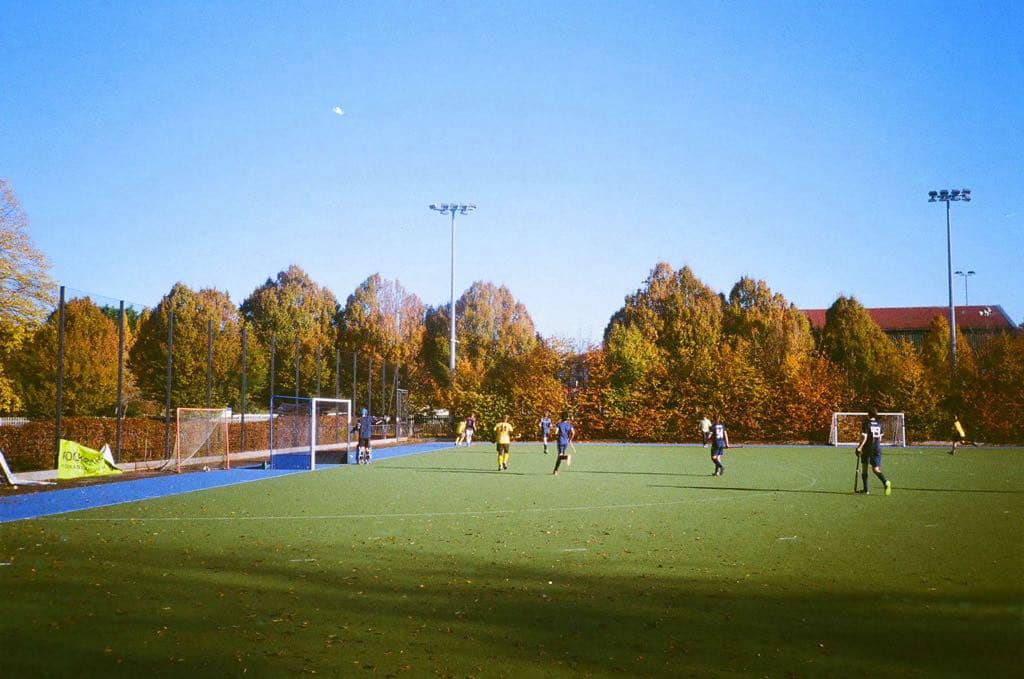It can be incredibly frustrating at times to see the vast resources of various colleges, and how little of that money makes its way into centralised, university-wide activities. I’m sure you or someone you know has had to beg their respective JCR or MCR for some funding for dramatic or artistic projects. Why is it then, that people choose to self-fund clubs through subs that they end up running themselves with little external help? Spending copious amounts of money on match kit and transport, just to have to manage the club themselves? Some want to be part of something bigger, some want to take on new responsibilities. No matter how ridiculous it seems that someone would volunteer for death by Google Sheets, ours is not to reason why when such a selfless service is provided.
Splitting up into two factions, club members take on either coaching or committee roles. Committee positions can give you the chance to pad out your CV, twisted into LinkedIn jargon that suddenly turns the checking of an Excel document into ‘managing a high profile group of assets on behalf of 50+ stakeholders’. But the more puzzling of the two to take on is coaching. From the perspective of someone who can only just make a university sport team and is happy just to play a sport where the first team get Full Blues (and that certainly is not me), having student coaches can make or break how enjoyable a season is. You can absolutely have a great time with your teammates, even if your coaches are about as (physically or mentally) present as the people in your 9ams. Good coaches, however, will make a great season amazing, even if most Wednesdays or Saturdays are spent silently returning to Oxford from some outskirt of London after losing a third game on the bounce.
I was lucky enough to have coaches like these in my first year, to ease the growing pains of moving to university sport (shoutout Dez and Rosie). They’ve even come back for an unprecedented second stint this year. Selflessly giving up upwards of six hours a week to watch eleven (relatively) unskilled and unfit blokes mull around an astro at 7am in the depths of January is a Herculean task that the masochists seem to have enjoyed enough to return. It may be the opportunity to get out of S&C… but I’m sure it’s just love of the game. If you’re really like, they may even try to get on your team’s table instead of their own for the End of Season Dinner. The patience of coaches doesn’t simply extend to the frustration of watching their masterfully crafted tactics wasted on us, but regular scheduling changes can make it understandably difficult to buy in. Everyone wants the best slots for training, but not everyone can have them, so being able to move with the ebbs and flows of everchanging disputes is an underappreciated aspect of their job description. They’re likely only one year into the club or university, at a point where it is easy to become disenfranchised after that lone year’s worth of experience. It’s frankly astounding that they’re so keen to try and impart their wisdom onto deaf ears.
You always seem to see professional athletes reunited with their childhood coaches, later on in their career – famous interviews include Ian Wright’s (former Arsenal and England footballer) meeting with his former teacher: Sydney Pigden. Wright later dedicated his 2016 autobiography: A Life in Football to Pigden. I don’t think divine intervention could even get people like me to a professional level, but it’s certainly true that many can remember important teachers or coaches that inspired them academically or in sport. It may be difficult to consider someone your own age (or sometimes younger) to be inspirational, or to provoke the same kind of reaction Ian Wright may have had. It is not impossible, though, to appreciate how coaches affect the culture of the team, and your enjoyment in the process.
It can be a fragile ecosystem. Both in reference to coaching and student sport committees. Training comes at awkward times and it becomes increasingly difficult to stick to the commitment that you promised at the beginning of your term. Not even a few weeks into captaining my hockey team and I’ve already had what some anonymous teammates may describe as ‘the worst organised cars’ he had ever seen. The comment may have stung less if he hadn’t played in our team since its conception… Regardless, it’s easy to forget that volunteering for these roles (and more often exec positions) are students with very little management experience, and an insane workload. Besides, a little drama is always fun. As a wise man once said, without experiencing a bit of in-club tension: ‘you haven’t known the triumphs and defeats, the epic highs and lows of [university hockey]’.


